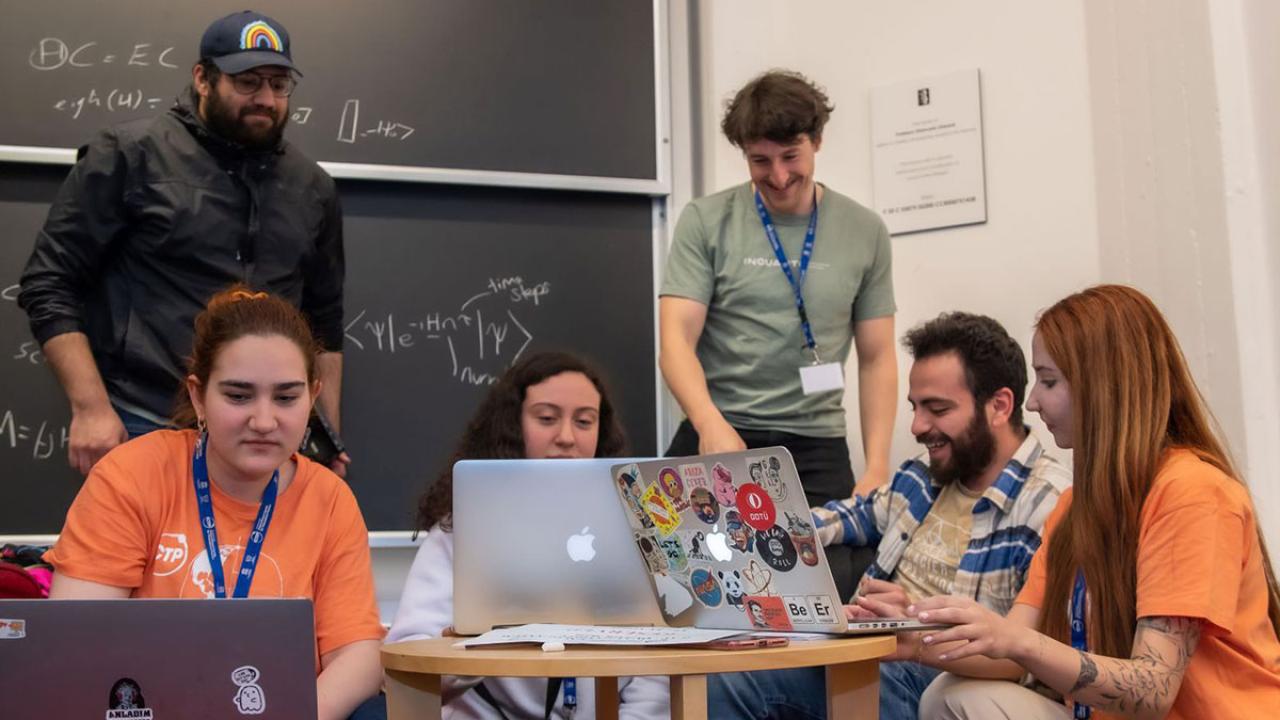
ICTP opens its doors this week for the ICTP-Quantinuum Quantum Hackathon. Eighteen international teams have been invited to the event, which involves a mix of lectures and workshops on the theme of quantum computing.
“Quantum computing is an emerging technology where quantum coherence (entanglement) is exploited to build (quantum) computers,” explains ICTP physicist Antonello Scardicchio, a co-organiser of the event. “Such computers can find the solutions of some problems much faster than a "classical" computer (even the largest supercomputers on Earth)."
“A functioning quantum computer could tackle fundamental physics problems, such as performing quick calculations of quantum field theory (like the Standard Model, our most fundamental theory of elementary particles), testing different competing theories of high-temperature superconductors or quantum spin glasses, or addressing more applied problems like finding the chemical properties of complex molecules or designing new materials. Some people claim that a quantum speed-up is to be expected also in the realm of artificial intelligence and the solution of combinatorial optimisation problems, which have many applications in economy and finance.”
The event is run in collaboration with Quantinuum, a global quantum computing company that develops software and hardware for use in next-generation science and technology.
"We are so excited to be collaborating with ICTP and quantum scientists from all over the world on this uniquely global quantum event – perhaps even the first global event in the rapidly emerging quantum computing sector,” says Ilyas Khan, founder and vice chair of Quantinuum. “As we all know, the advent of quantum computing is going to transform lives, societies, and economies everywhere. I believe that we have the chance to make sure this technology's benefits are felt and shared equally, by all people, in a manner that has not been possible in the past.”
The ICTP-Quantinuum Quantum Hackathon’s mix of teaching and interactive sessions provides participants with a deep-dive into quantum computing. “The hackathon has a pedagogical part in which the students are taught the foundations of quantum computing, functioning quantum algorithms, quantum heuristics, and quantum error correction strategies. In the more applied part of the event, they learn a programming language for quantum computers (in this case the quantum machines of Quantinuum and the language TKET) and write programs able to solve real-world case problems,” says Scardicchio. “The problem solving part of the hackathon is conducted as a competition, with a jury of experts, and the best projects will get a prize.”
One key component of the event is that it provides students from the developing world with training on this emerging technology. Rodrigue Woudi, a participant from the African Institute for Mathematical Sciences (AIMS) Cameroon student, says, “What attracted me to the hackathon was that it's in quantum computing, an area I am passionate about. Here at the Hackathon, it's been great so far. I have learned a lot and been introduced to an area called quantum computational chemistry and a new way of studying this pictorially and not just with equations, which makes it so interesting. Right now, I am looking forward to the Hackathon day [the problem solving part of the event].”
“This hackathon in partnership with ICTP invites students and aspiring scientists, from developing economies as well as the developed, together with major industrial partners, to explore the role of quantum computing,” adds Khan. “It is a demonstration that quantum computing is now ready to be incorporated into global education and thus continues the vital mission of ICTP from inception."
















